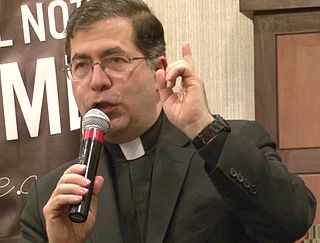A Quote by Hannah Arendt
There is all the difference in the world between the criminal's avoiding the public eye and the civil disobedience's taking the law into his own hands in open defiance. This distinction between an open violation of the law, performed in public, and a clandestine one is so glaringly obvious that it can be neglected only by prejudice or ill will.
Related Quotes
There is only one law of Nature-the second law of thermodynamics-which recognises a distinction between past and future more profound than the difference of plus and minus. It stands aloof from all the rest. ... It opens up a new province of knowledge, namely, the study of organisation; and it is in connection with organisation that a direction of time-flow and a distinction between doing and undoing appears for the first time.
All students, members of the faculty, and public officials in both Mississippi and the Nation will be able, it is hoped, to return to their normal activities with full confidence in the integrity of American law. This is as it should be, for our Nation is founded on the principle that observance of the law is the eternal safeguard of liberty and defiance of the law is the surest road to tyranny.
It is to law alone that men owe justice and liberty. It is this salutary organ, of the will of all which establishes in civil rights the natural equality between men. It is this celestial voice which dictates to each citizen the precepts of public reason, and teaches him to act according to the rules of his own judgment and not to behave inconsistently with himself. It is with this voice alone that political leaders should speak when. they command.
I think there has been an unfortunate tendency for a lot of different groups to forget that distinction between natural law and revealed truth and to say: Our complete agenda is to be enacted into laws governing the entire society. Many different religious groups claim that authority, not only Catholics. A lot of different Protestant groups as well are stepping forward to say: Here is our agenda, it is a moral agenda, ergo it must be enacted into law. I think that the distinction between natural law and more ultimate kinds of doctrine is being lost.
It is so difficult to draw a clear line of separation between the abuse and the wholesome use of the press, that as yet we have found it better to trust the public judgment, rather than the magistrate, with the discrimination between truth and falsehood. And hitherto the public judgment has performed that office with wonderful correctness.
For so great is the difference between just and unjust, that it is visible even in the lifeless image of it. For what order will be left in the world, if these opposites be confounded together? Such a distinction as this, therefore, between virtuous and vicious actions, has not only been engraven by the Lord in the heart of every man, but has also been frequently confirmed by his providential dispensations.







































